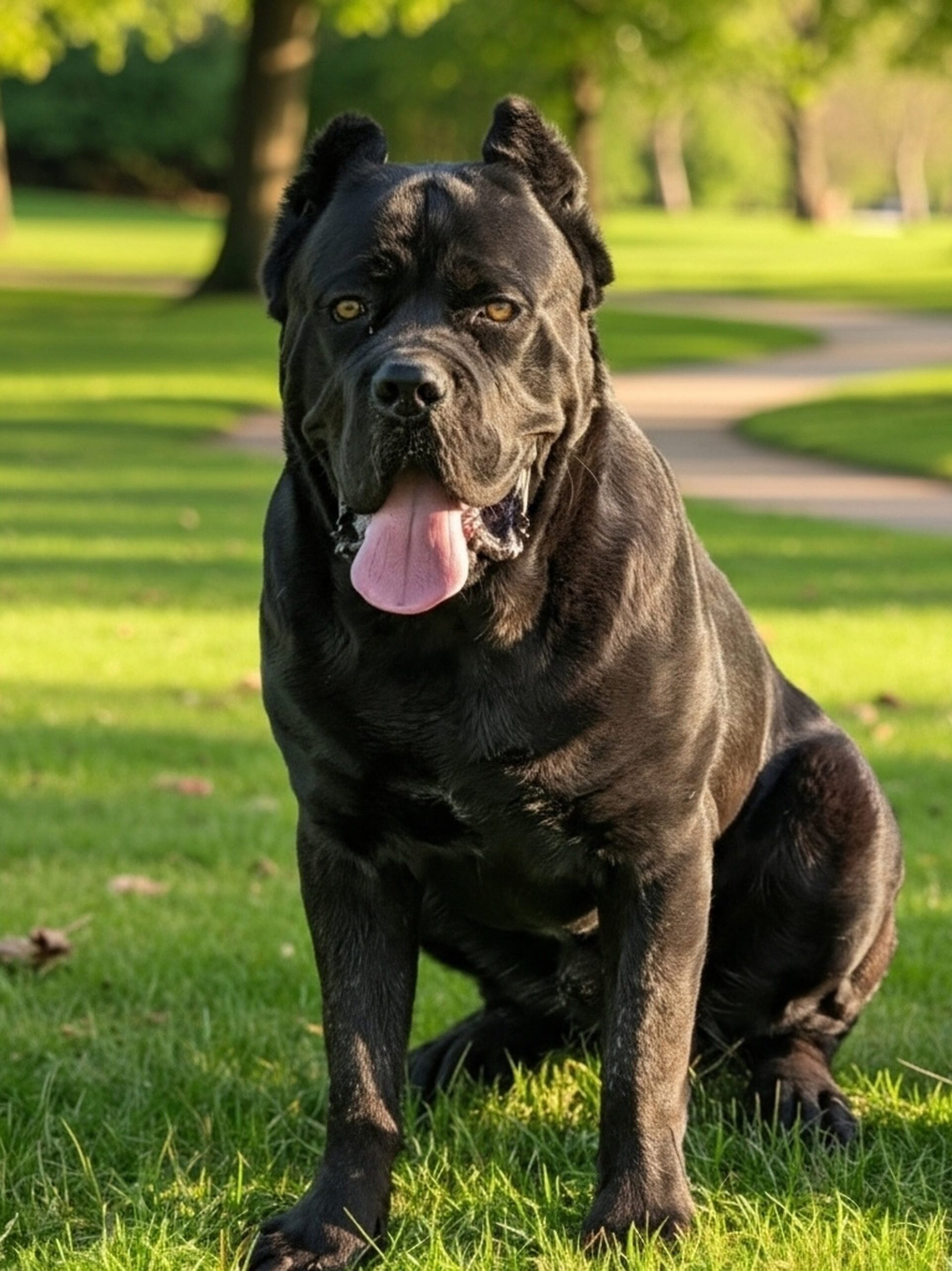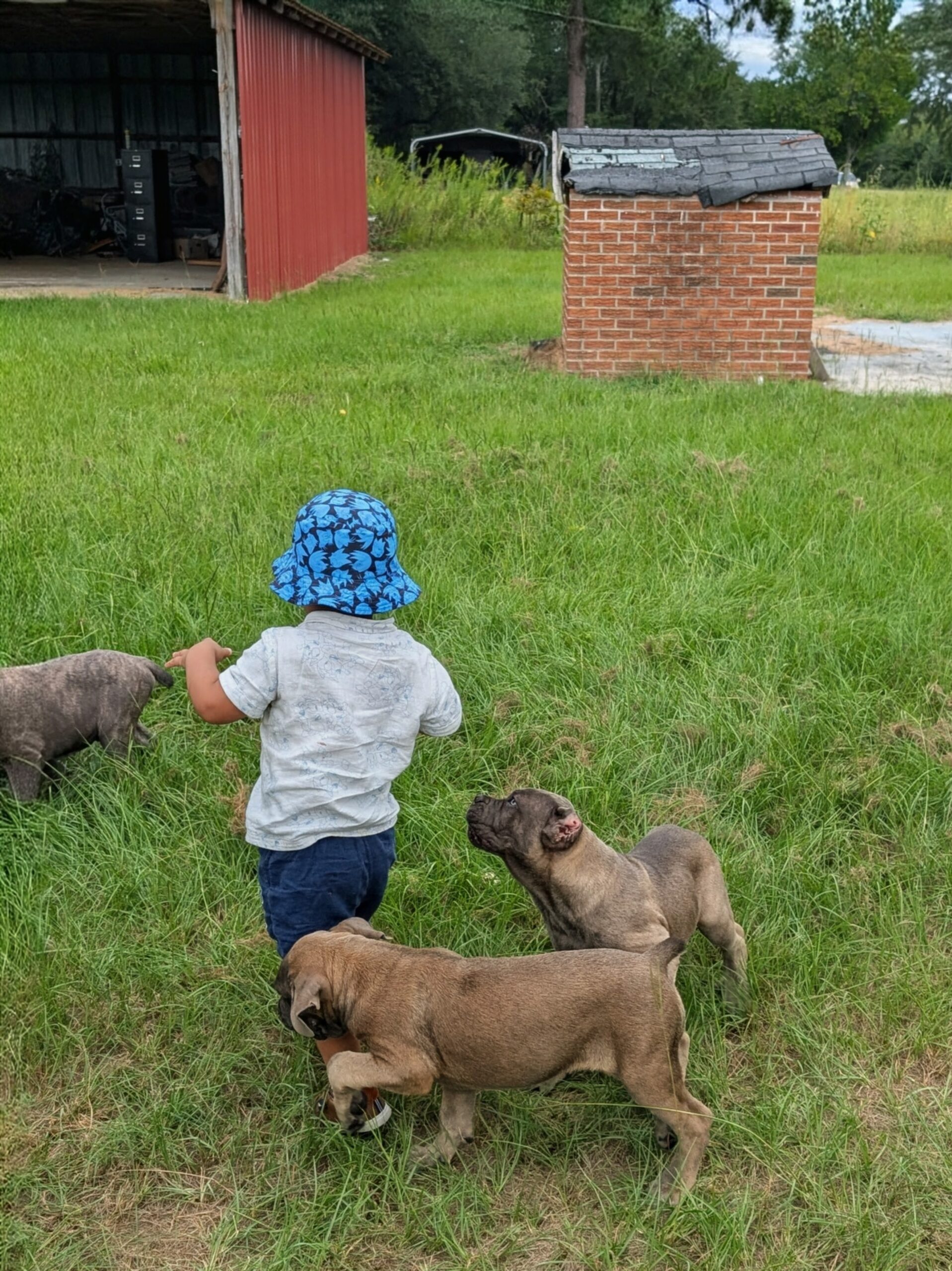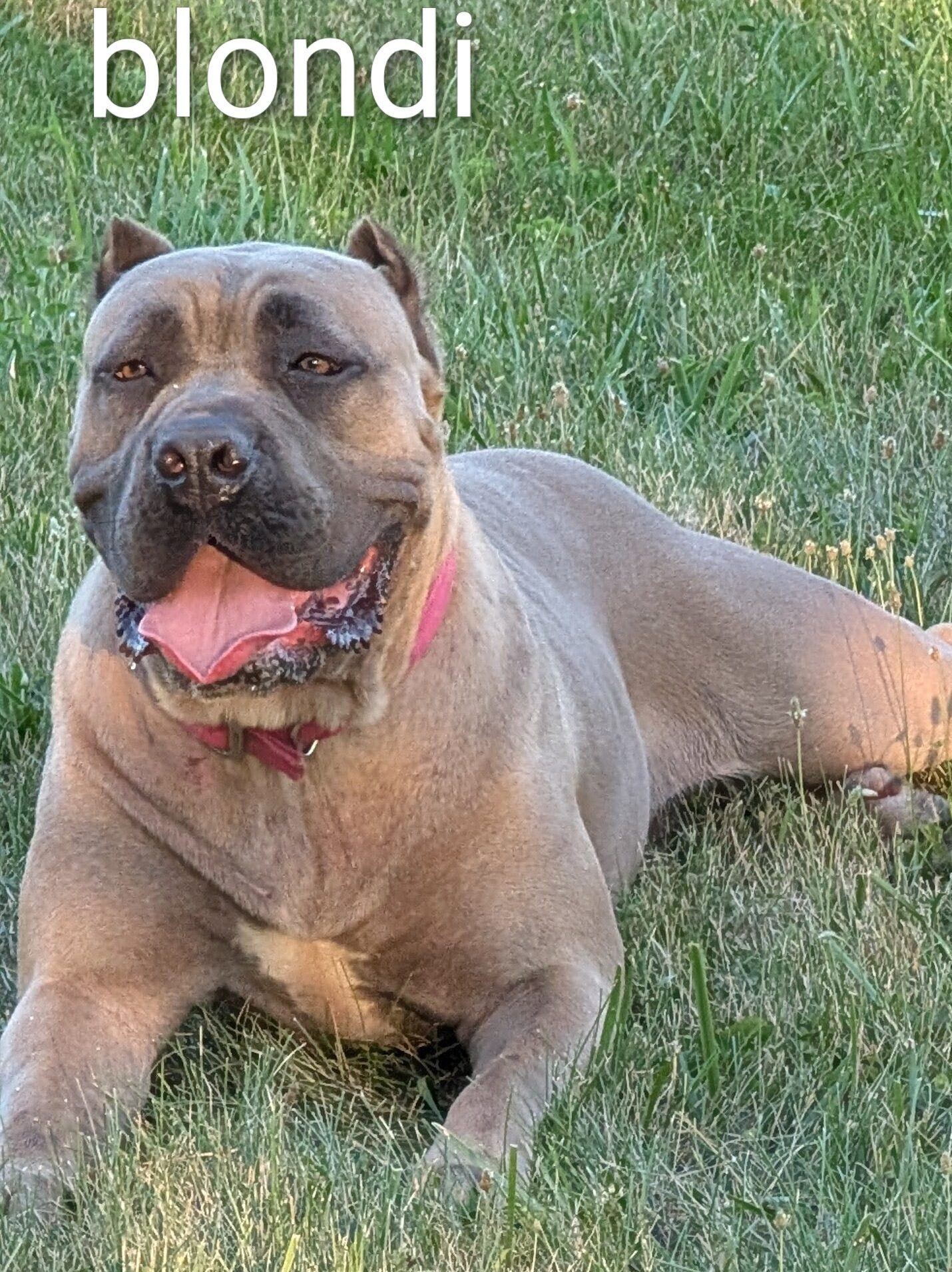Magna Cane Corso’s Profile
We at Magna have placed our complete focus on
cherishing the cane corso. Therefore, we aim to maintain a healthy structured dog. A Mastiff that was breed for protection and guarding; A loving gentle family dog.

Magna Cane Corso
Pure Breed!
This ancient Italian breed is very affectionate. They’re highly trainable, very intelligent and become extremely bonded to their human companions.

Shots & Records
We provide update shot records to all of our pure breed Cane Corsos.

Raised & Trained
We love to responsibly raise and train our Corsos so they have the tools to be well-rounded, beloved family members.

Temperaments
We strive to produce healthy, sound and structually dogs with exceptional stable temperaments.
Temperament
Cane Corsos are utterly devoted to their family and tend to stick close to them at all times. They are eager to please and fairly easy to train, but because some can be domineering.
Upkeep
Corsos tend to be quiet indoors but do need a moderate amount of exercise daily. A long jog or a couple of high-energy play sessions such as tugging, fetching, or swimming are fine. They thrive on mental stimulation. Coat care is minimal.
Healthy
The Cane Corso is a large size mastiff, muscular, largeboned and athletic dog. This breed is strong, agile and powerful. The Cane Corso projects confidence and power and is a capable protector of property and family.
History
Magna Cane Corso
The Cane Corso is the more streamlined of the two Italian breeds descending from the ancient Roman molossian war dogs, the heavier version being the Neapolitan Mastiff. While the Neo evolved as a dedicated guard dog, the Corso became a versatile farm dog.
Cane Corso (pronounced KAHN-nay Corso) comes from the word for catch dog, a dog used to overpower large prey. The name was used to describe these dogs as early as the twelfth century. After the fall of the Roman Empire, Corsos were used to protect farms, hunt tough prey, and even guided and rounded up sheep, goats, and semi-wild cattle.
With the onset of modern times, jobs for Corsos declined; then after World War I and especially World War II the Corso population in southern Italy dwindled. By the 1970s, only a few Corsos remained with peasants spread throughout the countryside. In 1973, two individuals located, collected, and bred the the remaining Corsos, and a decade later a breed club was formed. By 1996, the Cane Corso was recognized by the Fédération Cynologique Internationale. The first Corsos were brought to the United States in 1988. The AKC granted the breed full recognition in 2010.
Type
Working
Height
23.5-27.5″
Weight
90-130 lb
Family
Mastiff